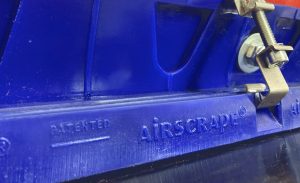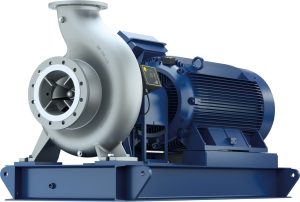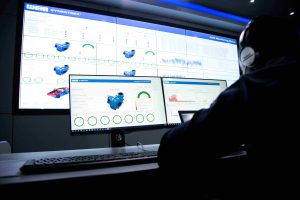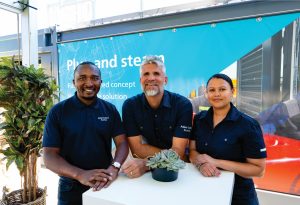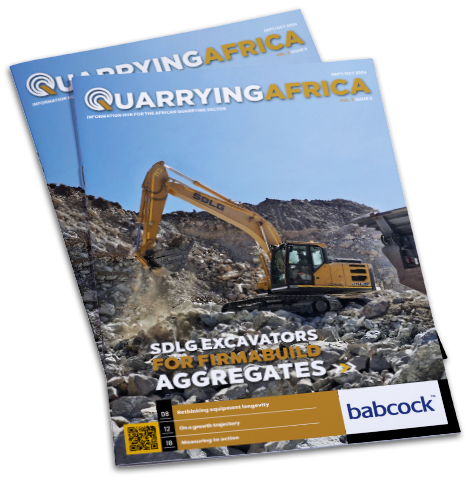Admixture specialist CHRYSO Southern Africa has invested extensively in its local production facilities, giving its customers a cost advantage and quick access to revised formulations. The polymer plant at its Jet Park facility has played a particularly important role in the company’s success – and promises to open more doors into Africa.
CHRYSO Southern Africa has manufacturing plants in Jet Park, Cape Town and Durban, as well as warehouses in Gqeberha and Bloemfontein. While the facilities in Cape Town and Durban produce about 70% of their requirements, there are certain specialised products that are supplied to them out of the Jet Park operation.
Among the company’s forward-looking infrastructure is its polymer production facility, which began operating in 2015. It produces four polymers for the manufacture of plasticisers and superplasticisers that are used in concrete mixes. It also has the capacity to produce four more different polymers, according to Andries Marais, Operations Director at CHRYSO Southern Africa.
“We were the first Southern Hemisphere company in the CHRYSO group to manufacture these specific polymers,” says Marais. “We used to import them from the group’s facility in France, when we would bring in around 38 containers every month; now we are able to import the raw materials and require only one container of specialised product each month.”
He highlights that having the polymer plant in South Africa has reduced logistical costs substantially, allowing savings to be passed on to the customer. It also allows much more flexibility in the manufacturing process. These polymers can be combined in any ratio required by customers to suit specific site conditions – addressing vital factors like workability and water demand.
“Every project location will have different environmental conditions, different construction materials and even different cement – so the concrete is not going to perform in the same way,” he explains. “With the production flexibility with our polymers, we can locally customise the solutions for each specific requirement, which really benefits our customers.”
The local facilities give CHRYSO Southern Africa the ability to make immediate changes to its admixture ingredients by varying the proportion of the different polymers – which are readily available in their plants. So responsive is this system that the company can have the necessary product ready for the customer within 24 to 48 hours.
“If you are reliant on imported polymers, it takes three months to import the necessary stock,” he says. “Then, if a customer’s cement chemistry changes, you might not have the required polymers to make the necessary adjustments to the admixture.”
Keeping the plants up to date and efficient takes continuous investment, emphasises Marais. CHRYSO South African reinvests 3 to 5% of its annual turnover into the facilities, to allow for regular strategic upgrades. For example, the mixer at the Jet Park plant is being upgraded at a significant cost, specifically to support the needs of the mining sector – a project that he expects to complete by the end of 2023. This was done in response to approaching 100% of the current capacity for a specific mining product.
“As we expand into Africa, we see considerable opportunity for growth in the mining industry – and so we need extra capacity to meet this expected demand,” he says. CHYRSO Southern Africa has been moving into various new countries since 2010. Markets in Zimbabwe, Botswana, Mozambique, Namibia and Zambia are already being serviced, and an office and toll manufacturing facility has been opened in Kenya.
The investment in the polymer plant alone has been doubled in the past three years, he points out, to increase its efficiencies and to grow its capacity by 100%. This will also allow the company to export polymers to Latin America in 2024, where the necessary formulations can be manufactured. He highlights how CHRYSO Southern Africa’s local facilities have opened up opportunities for businesses in the construction and other sectors.
“We have created the volumes and cost effectiveness to allow producers of concrete products to thrive,” he says. “We also nurture skills by employing post-graduates in our Jet Park plant, as well as to develop our research and development capacity to investigate formulations. We rely on concrete technologists in developing the products themselves.”
The manufacturing process is conducted at atmospheric pressure and below 80 degrees Celsius, which assists in addressing efforts by CHRYSO Southern Africa and its customers to reduce their carbon emissions. Marais says that the company has been monitoring its carbon footprint in recent years and is committed to steadily reducing this factor to 50% of current levels by 2030.
Quality is also a key consideration in all three plants countrywide, where the ISO 9001 quality management system is rigorously applied. He adds that the same attention is paid to environmental management through ISO 14001, and to safety through ISO 45001.

